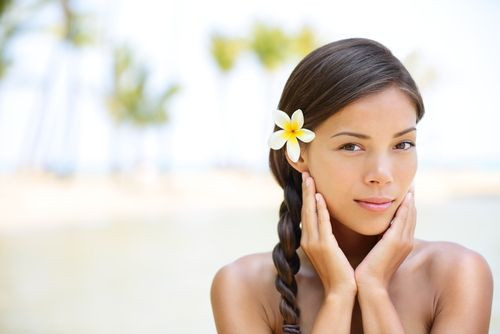Flower Power Is Real: Hair Ornament Elicits Positive Emotion, Fosters Social Relationships Among Strangers

In life we encounter several situations where we need a helping hand, whether we don’t have enough change for public transportation or we need to hitchhike because of car troubles. These times of hardship can be remedied with a simple gift from Mother Nature: flowers. We use them to convey compassion, happiness, romance, or regret. Now, according to a recent study published in Psychological Reports, simply wearing flowers in your hair may actually increase the chances a stranger will help you, such as getting free bus fare.
Flowers have been cultivated for more than 5,000 years, but there is limited knowledge about the effects of this behavior. However, while plants have evolved to induce several behavioral responses in a wide variety of species, according to an article “An Environmental Approach to Positive Emotion: Flowers,” published in the journal Evolutionary Psychology, scientists believe they have rapidly evolved to encourage positive emotion in humans, too.
A team of French psychologists, Jordy Stefan and Nicolas Guéguen of the Universite de Bretagne-Sud, sought to investigate whether flowers can increase positive responses to an explicit request for help. Two 19-year-old women, who were either wearing barrettes with or without a flower, were recruited to request bus fare from a total of 240 male and female strangers, who appeared to be in their thirties. The women were placed in areas with heavy pedestrian traffic in two different parts of town in the city of Lorient, south coast of Brittany in the south of France.
The women were told to alternate between wearing no hair ornament or a barrette with a synthetic red rose attached. The hair ornament had a diameter of seven centimeters, or nearly three inches, and it was clearly visible to the strangers they approached. The women approached 120 people each, while smiling and politely asking, "Excuse me, sir/madame, would you happen to have a euro for the bus?" according to Pacific Standard Magazine.
The findings revealed the pedestrians responded positively giving bus fare 76.7 percent of the time when the woman was wearing the flower, compared to only 50.8 percent of the time when the participants were without it. In regard to the gender of the strangers, "both men and women more readily helped those with the hair ornamentation," wrote the French researchers. They suggest the sight of the flower encouraged people to stop for a moment to chat with the woman, and therefore, increased the likelihood that they would give her the bus fare.
The results for this French study are in line with other studies that have found exposure to flowers can elicit positive emotions and help social relationships. A 2012 study published in the North American Journal of Psychology, found flowers could positively influence female motorist behavior when hitchhikers held flowers, since environmental cues can have an influence on individual behavior. The researchers believed due to the positive effect of flowers on women, female motorists would be more inclined to stop and offer a ride to a male holding flowers while hitchhiking. The males did solicit a higher response in the number of male and female drivers who stopped to offer a ride while the men held the flowers.
These studies suggest that flower power is in fact real, and it can produce positive emotions such as sympathy and connectedness. Flowers can reinforce positive social behavior, socio-economic acts such as social greeting patterns, and even memories of social events.
Sources:
Guéguen N and Stefan J. Effect of Hair Ornament on Helping. Psychological Reports. 2014.
Guéguen, N, Meineri S, Stefan, J. "Say it with Flowers"...to Female Drivers: Hitchhikers Holding Flowers and Driver Behavior. North American Journal of Psychology. 2012.
Published by Medicaldaily.com



























